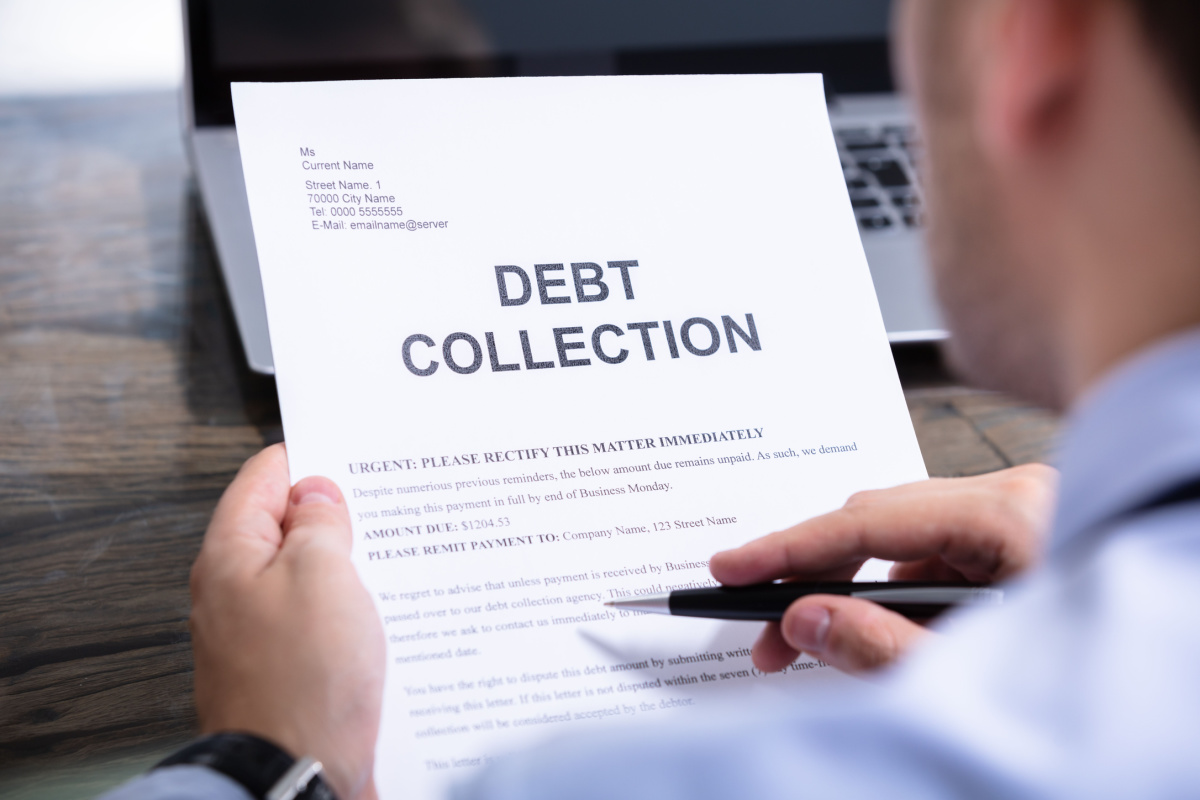





In August 2021, about 64 million people with a credit record (approximately 28% of Americans) had debt in collections on their credit report. Although the experience of debt collection is not unusual, it’s important to be aware of the process and one’s legal rights.
Understanding the Fair Debt Collection Practices Act can offer a sense of empowerment during debt collection encounters. Enacted in 1977, this federal law sets the rules for how debt collectors can operate. It aims to protect consumers from unfair, deceptive, or abusive practices. For example, debt collectors must identify themselves and provide information about the debt in question. Late-night phone calls or threats are strictly prohibited. Violations of these rules can result in penalties for debt collectors, offering a layer of protection for consumers. Debt collectors restrictions in terms of when and how individuals are contacted has to be respected.
First, it’s important to remain calm and not to make any immediate promises or payments. Rushed decisions can lead to complications later on. Second, individuals should request written verification of the debt. Federal law mandates that debt collectors provide this information within five days of initial contact. Third, it’s wise to document all interactions, including phone calls and written correspondence. Keeping a detailed record can serve as evidence in case of disputes or violations of the Fair Debt Collection Practices Act. Lastly, individuals should review their own financial records to confirm the legitimacy of the debt.
Verifying debt stands as an essential step before making any payments. One should not assume that a debt collector’s claims are automatically valid. Upon first contact, individuals have the right to request written verification of the debt in question. Debt collectors are obligated by federal law to provide such verification within five days of the initial communication. This document should include details like the amount owed, the name of the creditor, and instructions on how to dispute the debt. Once the verification is received, it’s a good idea to cross-reference these details with personal financial records. Mistakes can happen, and sometimes people are contacted about debts not owed.
According to the Fair Debt Collection Practices Act, debt collectors are generally allowed to call between 8 a.m. and 9 p.m., local time. Calls outside these hours are considered a violation of the law. Moreover, debt collectors are not permitted to contact individuals at their workplace if told either orally or in writing that such calls are not allowed. Debt collectors can also use mail, email, or text messages to communicate, but these methods must adhere to the same standards of fairness and transparency. For instance, a debt collector cannot send an email that disguises its true purpose or origin.
A cease and desist letter serves as a formal request to stop all communication from a debt collector. Once a debt collector receives such a letter, federal law mandates that all contact must cease, with a few exceptions like confirming the receipt of the letter or indicating any legal actions. It’s important to send the letter via certified mail and keep a copy for personal records as proof of the request.
While a cease and desist letter can halt the barrage of calls and letters, it doesn’t make the debt go away. Debt collectors can still take legal actions to collect the debt, such as filing a lawsuit. However, sending a cease and desist letter can offer a temporary respite and peace of mind, allowing individuals to focus on resolving their financial situation without constant interruptions.
A cease and desist letter can be a powerful tool for individuals seeking to halt communication from debt collectors. By sending such a letter, one formally requests that all contact from the debt collector stop immediately. According to federal law, once a debt collector receives a cease and desist letter, it must discontinue all communication, except to confirm the receipt of the letter or to indicate potential legal actions. To ensure its effectiveness, it’s advisable to send the letter via certified mail and to keep a copy as evidence.
It’s worth noting that while a cease and desist letter stops the calls and letters, it doesn’t eliminate the debt itself. Debt collectors still retain the option to pursue legal avenues for debt recovery. Nonetheless, a cease and desist letter can provide a temporary break from the stress of constant contact, allowing individuals to focus on their financial matters.
Legal protections exist to shield individuals from harassment and abuse during the debt collection process. The Fair Debt Collection Practices Act outlines what constitutes unacceptable behavior from debt collectors. For instance, using obscene language, making threats of violence, or calling incessantly to annoy someone are all considered harassment. Debt collectors are also prohibited from making false statements, such as claiming to be law enforcement or misrepresenting the amount owed.
If a debt collector violates these rules, individuals have the right to file a complaint with the Federal Trade Commission or their state’s attorney general. Penalties for debt collectors who break the law can include fines and other legal consequences.
Disputing a debt involves more than just telling a debt collector that something seems off. There are specific procedures and timeframes to follow to make a dispute official. Within five days of the initial contact, a debt collector is required to send a written notice outlining the debt details. Individuals have 30 days to send a written dispute if they believe the information is incorrect. Once a dispute letter is received, the debt collector must halt collection activities until verification of the debt is provided. It’s important to send the dispute letter via certified mail and keep a copy for personal records. While the dispute is under review, collection activities must pause, offering individuals a chance to gather more information or prepare their next steps.

Debt collection activities can have a noticeable effect on a credit score. When a debt goes into collection, it usually means that payments have been missed, and these delinquencies are reported to credit bureaus. A collection account can stay on a credit report for up to seven years, significantly lowering the score and making it more challenging to secure loans or credit in the future.
Even settling a debt or paying it off doesn’t immediately fix a credit score. The collection account will still appear on the credit report, although it will be marked as “Paid,” which is slightly less damaging than an unpaid collection. However, some newer credit scoring models give less weight to paid collections, which can be a small relief.
If you’re looking to make informed decisions about your financial future, consider exploring more about mortgage modification. The experts at My Debt Advisors offer insights into post-bankruptcy recovery strategies to guide you through the aftermath of financial distress. For those in the Milwaukee area, their Downtown Milwaukee office provides tailored advice and support. Moreover, understanding the affordability of bankruptcy lawyers can be crucial in your journey. And for homeowners, it’s vital to be vigilant and beware of foreclosure fraud that can further complicate financial matters.
If you are going through the debt collection process, contact us or call us at 866-696-6432 today for a free consultation.

Learn about bankruptcy protections, types of bankruptcy, how to get started, what to expect, and who to trust. Filing bankruptcy is the ONLY way to completely eliminate debt. If bankruptcy is right for you, it offers powerful protections that cannot be achieved through alternative solutions such as hardship relief, loans, or debt settlement.